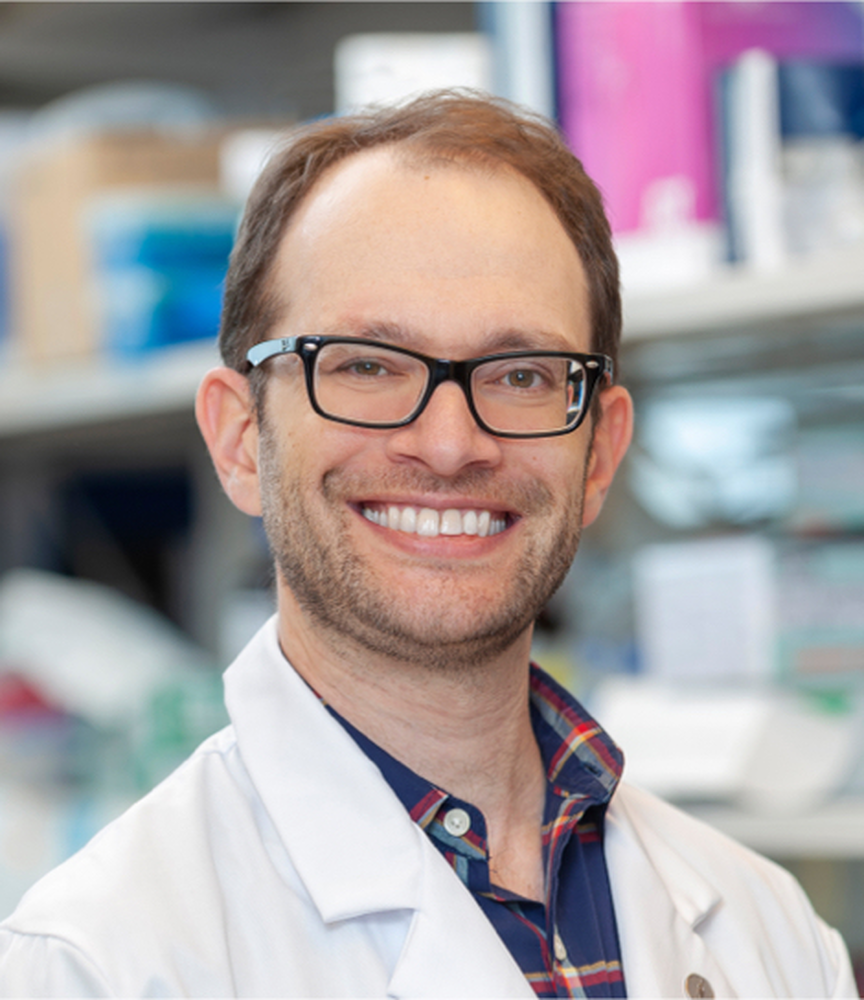
As the head of the Cancer Nanomedicine Laboratory at Memorial Sloan Kettering Cancer Center Daniel Heller (PhD, '10) has rapidly become one of the preeminent young scientists in cancer science. In 2023, Heller and colleagues reported a new nanotherapeutic approach targeting blood vessels to deliver medicines to brain cancers. This work could open the doors to new treatments for brain cancer.
Heller said it is definitely a dream job for him to be doing this work, leading a research group, mentoring young researchers. He is also an academic entrepreneur, working with startup companies to bring his group's innovations to the clinic, and now, he is helping his institution build a Cancer Engineering PhD program to explore how engineers and cancer researchers can be integrated in new ways.
"I get to do so many exciting things," he said.
Heller recently visited with students, faculty and others on the Illinois campus when he returned for the College of LAS alumni award ceremony and was honored with the LAS Outstanding Young Alumni Award.
He shared his winding career path with undergraduate and graduate students. A history major in college, Heller discovered that he loved to teach while doing chemistry demonstrations with the chemistry club at a local science museum, so he became a middle school science teacher in Houston, Texas. While helping eighth graders with their science fair projects, he realized how much he loved scientific research and mentoring young researchers.
"I then tried to figure out how to become a scientist," said Heller, who ended up on the Illinois Chemistry website learning what chemistry courses he should take to get into the PhD program. "I then realized I needed to take more math courses as a prerequisite for physical chemistry, so I took math classes at Houston Community College. I almost failed, in part because I had forgotten so much of first semester calculus."
He volunteered in a couple research labs at the University of Houston and Rice University for nearly two years, working on self-assembled monolayers and materials chemistry, optics, and neuroscience and applied to grad schools.
He ultimately was accepted to and chose Illinois, he said, due to the large number of great chemistry and engineering labs he could potentially join. Though a chemistry student, he joined the lab of Michael Strano in the Chemical and Biomolecular Engineering and worked in the field of carbon nanotubes.
"I investigated their novel optical properties and also learned how they could be used to make biosensors. The work heavily impacts my research group today," he said.
After a postdoctoral position in Bob Langer’s lab at MIT, where he learned about drug delivery and cancer, he applied to faculty positions in chemistry and engineering departments.
"I never thought that I would be at a cancer center or biomedical research institution, but I was at a conference and was approached by a department head from Memorial Sloan Kettering. When deciding where to start my own laboratory, where I intended to develop nanotechnologies to detect and treat cancer, I realized that it would be great to be close to the people who understood the problems that I wanted to address, and even better to be right in the middle of a cancer institution. It turned out to be an ideal place for that," he said.
What have been keys to your success as a researcher? Supporting the careers of young researchers, being a good collaborator, and always trying to get better at those things.
What do you enjoy most about your work? Getting to work with so many great people from different backgrounds and fields of expertise and working to make a difference in peoples’ lives.
How did your advisor and/or research group and/or the graduate program at Illinois impact you? And did your graduate work connect with what you are doing today? I learned so much from my advisor, who was just starting his lab at the time, about running a lab, and from collaborators and lifelong friends in Chemistry and other departments. My research still focuses on carbon nanotubes, which was the focus of my graduate career, now to develop AI-enabled cancer diagnostics and other technologies to investigate cancer and develop new therapies.
Any advice for current graduate students wanting to find fulfilling careers in science? Working with others is so important in a graduate career, to learn the many, many skills that go into becoming a great scientist, and to expand your research into new, exciting directions.